For the current series of Business Circles, we’re addressing “Leadership Essentials” as identified below. The objective is to share views, attitudes, leadership theory, practice, and experiences in order to establish improved/enhanced models for the most effective form(s) of Leadership.
From all the Circles to date, considerable and valuable insight has been gained from our discussions and conclusions over the last year or so but instead of them being of an open-ended format going forward, we’re now introducing a more formal and structured format for each Circle. It’s felt that this will provide more detailed insight about the specific topics concerned and open up new perspectives to implement within our respective organisations and in any training we may be involved with.
Within each topic, skills, attributes, experience, and behaviours naturally play their part and we can consider the pragmatic, emotional intelligence, ethical issues and many other aspects that have a role in creating the most productive and person-centered working environments.
At the first session, we looked at elements of Shared Leadership and briefly introduced the topic of Resilience, which we’ll be focusing on at the next Circle on 24th March.
For those unable to attend the last Circle, we can provide a summary for you prior to the next one.
A detailed format for the Circle on 24th March will be sent out a week beforehand.
Spaces are LIMITED for this session; first come, first served. Please note that all sessions are held on Zoom – we advise that you ensure your Zoom application, whether on desktop, browser, or mobile device, is the most current version. Please see Zoom Updates for more details.
This event is for anyone who’d like to share their experiences of Leadership, whether as a Leader, a Leadership Trainer or as one who has observations to make of their Leaders.
March Women in Leadership RoundtableJoin host Simone Müller for ‘Contribute with self-integrity’, featuring guest speaker, Jacqueline McLeod!
The upcoming International roundtable session on Zoom will focus on:
Who is this aimed at? Female professionals from across all sectors; academia, entrepreneurs, coaches & consultants.
Please note that all roundtable sessions are held on Zoom – we advise that you ensure your Zoom application, whether on desktop, browser, or mobile device, is the most current version. Please see Zoom Updates for more details. We understand not everybody will be able to attend due to this session taking place in the GMT time zone. Please keep an eye out for future sessions held at a more favourable time for you.
All attendees must arrive on time and be available to stay for the full session to avoid disruptions. It is not guaranteed late arrivals will be granted admittance.

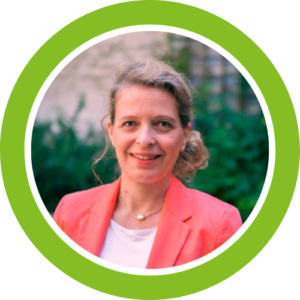
Simone holds a Masters in Business Administration from the CAU University of Kiel (Germany) and has worked in international management roles at a multinational corporation for over a decade. Since leaving her corporate career, Simone focused on International Leadership Development and Business Coaching. She is an accredited coach, trainer, and NLP master practitioner.
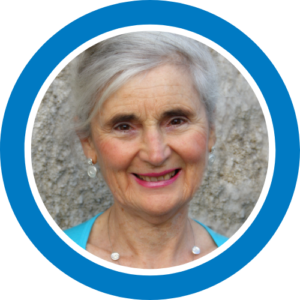
Jacqueline was a health professional and clinician until her lifelong passion for self-development led her to the studies of spirituality and alternative health. Her book Feminine Masculine Balance introduces a paradigm shift that is a pathway to a more peaceful, progressive and nourished society.
February Advanced Conscious Leadership Business Circle
As part of the ongoing development of the IofC UK Advanced Conscious Leadership Programme (ACLP), Business Circles are being offered online for those involved in Business and Social Enterprise Leadership, Leadership Learning at Business Schools and Leadership Coaches. The discussions are aimed at sharing factors such as leadership styles and changing organisational models, attitudes, offerings and products. We also welcome those not involved directly in Leadership but who’d like to share their experiences of their Leaders.
Facilitated by Anton Smith, Business Circles are collaborative and open discussions that are not simply within a ‘post-pandemic’ perspective. These 90-minute discussions are grounded in an understanding that, for far too long, Leadership and organisational models and processes have not been people-centered nor holistic in approach. It’s time to focus on the ‘New Possible’, not the ‘New Normal’!
There is no fixed agenda and the session will reflect aspects of:
We welcome discussion topics from all participants. Please feel free to make suggestions.
Spaces are LIMITED for this session; first come, first served. Please note that all sessions are held on Zoom – we advise that you ensure your Zoom application, whether on desktop, browser, or mobile device, is the most current version. Please see Zoom Updates for more details.
This event is for anyone who’d like to share their experiences of Leadership, whether as a Leader, a Leadership Trainer or as one who has observations to make of their Leaders.
February Women in Leadership RoundtableJoin host Simone Müller for ‘Start Leading Boldly’, featuring guest speaker, Peace N. Kuteesa!
The upcoming International roundtable session on Zoom will focus on:
Who is this aimed at? Female professionals from across all sectors; academia, entrepreneurs, coaches & consultants.
Please note that all roundtable sessions are held on Zoom – we advise that you ensure your Zoom application, whether on desktop, browser, or mobile device, is the most current version. Please see Zoom Updates for more details. We understand not everybody will be able to attend due to this session taking place in the GMT time zone. Please keep an eye out for future sessions held at a more favourable time for you.
All attendees must arrive on time and be available to stay for the full session to avoid disruptions. It is not guaranteed late arrivals will be granted admittance.


Simone holds a Masters in Business Administration from the CAU University of Kiel (Germany) and has worked in international management roles at a multinational corporation for over a decade. Since leaving her corporate career, Simone focused on International Leadership Development and Business Coaching. She is an accredited coach, trainer, and NLP master practitioner.

Peace N. Kuteesa is the co-founder Zimba Women which provides tools and technology platforms, business training and mentorship for women-led SME’s enabling them to manage and scale their businesses in Africa.
Peace has worked on technical IT projects for international organizations like U.S Mission Uganda, World Bank and United Nations for over 10 years and currently serves as Gender and Digital Transformation Expert UNDP in NY.
A Computer Engineer passionate about integration of Cybersecurity and Digitalization’s effect on Innovations in business, she is a member of the Africa List, International Consortium of Minority Cybersecurity Professionals, 2019 Paris Global Women in Tech Awards winner, 2018 Uganda Women4Women Awards and 2017 Young Achievers Awards Uganda Winner. She is a board member for Blue Number Foundation (US) and Advisory Board member International Diversity Artificial Intelligence Observatory IDAIO. Her goal is inspiring more women to pursue STEM and Entrepreneurial careers.
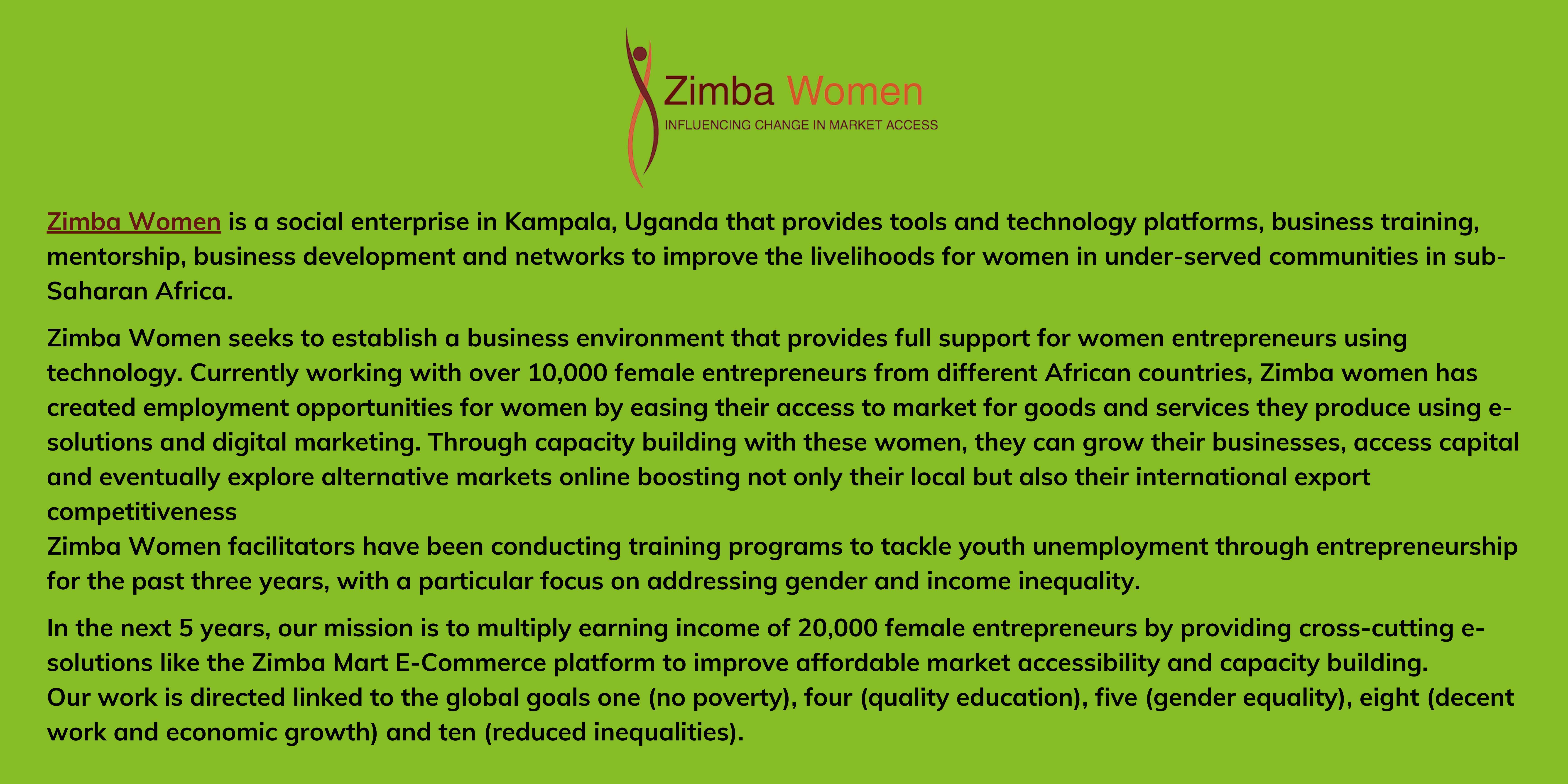
Peace Circles are the core component of the Creators of Peace programme.
The eight-week online Peace Circles course explores 10 themes centred around creating peace that includes listening to others, the power of forgiveness, and inner peace. Each weekly session serves as a ‘gathering point’ and is designed to connect from week to week, so participants need to commit to all the sessions per course. The course is unique in that it also offers an opportunity for each participant to share their own story, which allows for self-empowerment and development of ones own peacemaking skills.
Peace Circle’s are facilitated in the style of a ‘talking circle’, where all voices are heard respectfully, and a safe space is established at the beginning of each session to allow individuals to explore diverse perspectives. Peace Circles are free of charge as they are subsidized by donations, grants and volunteers. At the end of a Peace Circle we encourage contributions from participants as a way to ‘pay it forward’ so we can continue to offer all women the opportunity to participate in exploring their role as a peace creator.
Please note that due to the connected nature of Peace Circles you will need to commit to attending all seven sessions in a course.
October–November
Mondays, 4 October – 22 November
4:00 – 6:00 PM BST (timings will change to GMT from 31st October)
Peace Circles are only open to women, including trans women, as a way of creating safe space. Thank you for your respect and cooperation. Please note that all sessions are held on Zoom – we advise that you ensure your Zoom application, whether on desktop, browser, or mobile device, is the most current version. Please see Zoom Updates for more details.
Qualities & Strategies of Peacemakers – Online
Qualities & Strategies of Peacemakers (QSP-online) is a week-long course of five modules, each based on a documentary film, followed by interactive analysis.
The films show examples of reconciliation after conflict in a variety of contexts: inter-national, inter-religious, inter-ethnic and post-colonial. After an introduction and viewing of the film, participants take part in an interactive analysis facilitated by Dr Omnia Marzouk and/or Peter Riddell.
QSP is for anyone over the age of 18, in particular those who want to respond to past or present instability in their countries. It aims to enrich their understanding of peacemaking, and stimulate new ideas for ways forward.
QSP is free of charge, but voluntary donations to extend the programme are appreciated.
This course meets each Tuesday, 17:30 to 19:45 BST/UTC+1, from 27 April to 25 May. (North & Latin America, Europe, Africa, Middle East)
Please plan to join the course 15 minutes prior to the starting time. All sessions are held on Zoom – we advise that you ensure your Zoom application, whether on desktop, browser, or mobile device, is the most current version. Please see Zoom Updates for more details.
Please use this link to access the Introduction, Course Content and Application Form.
We can all think of examples of relationships that are not in a healthy state, between humans, or between humans and our natural habitat. It goes without saying that everyone wants to live in a peaceful environment. But how to bring peace? Perhaps examples of outstanding peacemakers can stimulate fresh ideas of steps that we can take.
The course consists of five short modules based on documentary films of peacemakers in very different contexts. In each module, a viewing of the film will be followed by facilitated interactive analysis, when participants will together reflect on:
Questionnaires will be sent to participants before each module to note their observations while they watch the film, and there will be time to reflect further after the film.
The course is an introduction to an approach to peacemaking that was developed by Frank Buchman, the founder of what is today known as Initiatives of Change.
So it is natural to start with a recent film about him, ‘The Man Who Built Peace’, as it sets the context for all the other modules. The facilitated analysis focuses on the evolution of his strategy in different situations, from founding a hostel for street kids in the early 1900s, to ‘turning round’ a failing college, to creating an international network for moral and spiritual renewal, to being decorated by the governments of France and Germany, as well as of Japan and the Philippines, for his contribution to reconciliation between them after the Second World War.
The second film, ‘For the Love of Tomorrow’, takes a particular example of Buchman’s approach, which took place in the immediate aftermath of the Second World War. The discussion after the film focuses on the roles of a team of people, trained by Buchman, who worked together to enable an embittered French politician become a significant agent for post-war reconciliation with the Germans.
The third film, ‘The Imam and the Pastor’, also shows how a change of heart in individuals can lead to initiatives which have a far wider impact. In this case, the context is religious conflict in northern Nigeria in the early 1990s, where two rival militia leaders came together to train a task force of imams and pastors to travel to mediate in flashpoints.
The fourth film ‘An African Answer’ is a sequel to the previous film and focuses on healing ethnic conflict. Here we see the imam and the pastor in Kenya applying the mediation approach that they developed in Nigeria, after serious post-election violence in 2007-8. In the discussion, participants will analyse the mediation process step by step.
The final film, ‘Beyond Forgiving’ is a story of post-colonial reconciliation from South Africa. Shortly after the end of Apartheid, a black guerrilla commander ordered a revenge shooting in which a white girl died. Some years later, the girl’s mother finds an opportunity to confront the guerrilla commander, and they speak of the painful realisations for both of them as they begin to journey together.
The main aim of the course is to absorb as much wisdom as possible about the healing of broken relationships from these stories of remarkable people.
The course relates to the UN Sustainable Development Goal 16: Peace, Justice and Strong Institutions.
The course is free of charge, but please consider a voluntary contribution.
Qualities & Strategies of Peacemakers – Online
Qualities & Strategies of Peacemakers (QSP-online) is a week-long course of five modules, each based on a documentary film, followed by interactive analysis.
The films show examples of reconciliation after conflict in a variety of contexts: inter-national, inter-religious, inter-ethnic and post-colonial. After an introduction and viewing of the film, participants take part in an interactive analysis facilitated by Dr Omnia Marzouk and/or Peter Riddell.
QSP is for anyone over the age of 18, in particular those who want to respond to past or present instability in their countries. It aims to enrich their understanding of peacemaking, and stimulate new ideas for ways forward.
QSP is free of charge, but voluntary donations to extend the programme are appreciated.
1-5 March 2021,18:00 GMT – 20:00 GMT (North, Central & South America, Europe, Africa, Middle East)
Please plan to join the course 15 minutes prior to the starting time. All sessions are held on Zoom – we advise that you ensure your Zoom application, whether on desktop, browser, or mobile device, is the most current version. Please see Zoom Updates for more details.
Please use this link to access the Introduction, Course Content and Application Form.
We can all think of examples of relationships that are not in a healthy state, between humans, or between humans and our natural habitat. It goes without saying that everyone wants to live in a peaceful environment. But how to bring peace? Perhaps examples of outstanding peacemakers can stimulate fresh ideas of steps that we can take.
The course consists of five short modules based on documentary films of peacemakers in very different contexts. In each module, a viewing of the film will be followed by facilitated interactive analysis, when participants will together reflect on:
Questionnaires will be sent to participants before each module to note their observations while they watch the film, and there will be time to reflect further after the film.
The course is an introduction to an approach to peacemaking that was developed by Frank Buchman, the founder of what is today known as Initiatives of Change.
So it is natural to start with a recent film about him, ‘The Man Who Built Peace’, as it sets the context for all the other modules. The facilitated analysis focuses on the evolution of his strategy in different situations, from founding a hostel for street kids in the early 1900s, to ‘turning round’ a failing college, to creating an international network for moral and spiritual renewal, to being decorated by the governments of France and Germany, as well as of Japan and the Philippines, for his contribution to reconciliation between them after the Second World War.
The second film, ‘For the Love of Tomorrow’, takes a particular example of Buchman’s approach, which took place in the immediate aftermath of the Second World War. The discussion after the film focuses on the roles of a team of people, trained by Buchman, who worked together to enable an embittered French politician become a significant agent for post-war reconciliation with the Germans.
The third film, ‘The Imam and the Pastor’, also shows how a change of heart in individuals can lead to initiatives which have a far wider impact. In this case, the context is religious conflict in northern Nigeria in the early 1990s, where two rival militia leaders came together to train a task force of imams and pastors to travel to mediate in flashpoints.
The fourth film ‘An African Answer’ is a sequel to the previous film and focuses on healing ethnic conflict. Here we see the imam and the pastor in Kenya applying the mediation approach that they developed in Nigeria, after serious post-election violence in 2007-8. In the discussion, participants will analyse the mediation process step by step.
The final film, ‘Beyond Forgiving’ is a story of post-colonial reconciliation from South Africa. Shortly after the end of Apartheid, a black guerrilla commander ordered a revenge shooting in which a white girl died. Some years later, the girl’s mother finds an opportunity to confront the guerrilla commander, and they speak of the painful realisations for both of them as they begin to journey together.
The main aim of the course is to absorb as much wisdom as possible about the healing of broken relationships from these stories of remarkable people.
The course relates to the UN Sustainable Development Goal 16: Peace, Justice and Strong Institutions.
The course is free of charge, but please consider a voluntary contribution.
Creators of Peace – Peace Circles (London)
Peace Circles are the core component of the Creators of Peace programme.
This intensive weekend Peace Circle explores 10 themes centred around creating peace that include listening to others, the power of forgiveness, and inner peace.
This hybrid program starts with an introductory evening online and then 2 days in person.
The Peace Circle is designed to flow from one gathering point to another and so participants need to commit to all the sessions. The course is unique in that it also offers an opportunity for each participant to share their own story, which allows for self-empowerment and development of ones own peacemaking skills.
Peace Circle’s are facilitated in the style of a ‘talking circle’, where all voices are heard respectfully, and a safe space is established at the beginning of each session to allow individuals to explore diverse perspectives.
Peace Circles are free to join. If you are joining us from an organisation or business please consider making a donation. Peace Circles are subsidized by donations, grants and volunteers which allows them to continue to be delivered without charge.
At the end of a Peace Circle we encourage contributions from participants as a way to ‘pay it forward’ so we can continue to offer all women the opportunity to participate in exploring their role as a peace creator.
Please note that due to the connected nature of Peace Circles you will need to commit to attending all sessions in a course.
March
London – 24 Greencoat Place, London SW1P 1RD
Thursday 24th March – 5:30-7:30pm (online)
Saturday 26th March – 10am-6pm (in person)
Sunday 27th March – 10am – 6pm (in person)
Peace Circles are only open to women, including trans women, as a way of creating safe space. Thank you for your respect and cooperation. Please note that all sessions are held on Zoom – we advise that you ensure your Zoom application, whether on desktop, browser, or mobile device, is the most current version. Please see Zoom Updates for more details.
September Women in Leadership Roundtable
Join host Simone Müller for ‘Discover your inner glass ceilings’ featuring guest speaker, Alexandra Berg!
The upcoming International roundtable session on Zoom will focus on:
Who is this aimed at? Female professionals from across all sectors; academia, entrepreneurs, coaches & consultants.
Please note that all roundtable sessions are held on Zoom – we advise that you ensure your Zoom application, whether on desktop, browser, or mobile device, is the most current version. Please see Zoom Updates for more details. We understand not everybody will be able to attend due to this session taking place in the BST time zone. Please keep an eye out for future sessions held at a more favourable time for you.
Simone holds a Masters in Business Administration from the CAU University of Kiel (Germany) and has worked in international management roles at a multinational corporation for over a decade. Since leaving her corporate career, Simone focused on International Leadership Development and Business Coaching. She is an accredited coach, trainer, and NLP master practitioner.

Alexandra Berg is an Inspirational Speaker, Leadership Consultant, and Facilitator. Her passion is to create heart-to-heart connection and meaningful conversations, unleashing authenticity and full potential of people and organisations. Following the teachings of Lovisa Alsén and Claire Zammit, she’s been exploring the feminine, believing that the only way to change the world is from within. Alexandra holds a MSc from Stockholm School of Economics, (Sweden), and has a background in various leadership positions and management consulting.
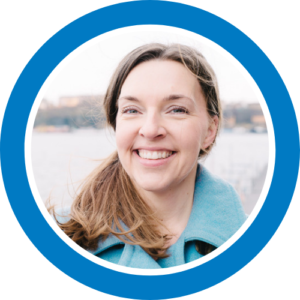
November II Women in Leadership Roundtable
Join host Simone Müller for ‘Igniting a new way of leading’, featuring guest speaker, Aurora Pagonis!
The upcoming International roundtable session on Zoom will focus on:
Who is this aimed at? Female professionals from across all sectors; academia, entrepreneurs, coaches & consultants.
Please note that all roundtable sessions are held on Zoom – we advise that you ensure your Zoom application, whether on desktop, browser, or mobile device, is the most current version. Please see Zoom Updates for more details. We understand not everybody will be able to attend due to this session taking place in the GMT time zone. Please keep an eye out for future sessions held at a more favourable time for you.
All attendees must arrive on time and be available to stay for the full session to avoid disruptions. It is not guaranteed late arrivals will be granted admittance.

Simone holds a Masters in Business Administration from the CAU University of Kiel (Germany) and has worked in international management roles at a multinational corporation for over a decade. Since leaving her corporate career, Simone focused on International Leadership Development and Business Coaching. She is an accredited coach, trainer, and NLP master practitioner.
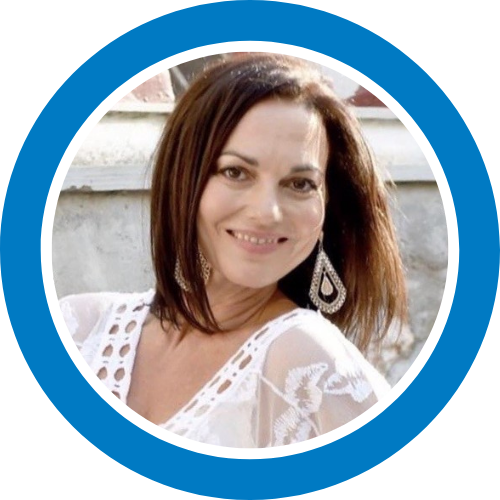
Aurora is an Evolutionary Leader, Visionary and Feminine Leadership coach who is dedicated to enabling women in business to thrive and rise in their leadership.
For over twenty years she has traversed the path of business in senior roles in the Telco, IT and Wellness sectors and equally the path of empowerment as a Leadership and Emotional Intelligence Coach, Inspirational Speaker and Facilitator.
As these two paths unified, Aurora created ‘She Speaks’, a coaching and leadership organisation dedicated to mentoring feminine influencers and emerging conscious leaders. Empowering women to create change for the freedom and betterment of all.
‘She Speaks’ facilitates the Femme Q Coaching Program, Global Mastery Groups, Women in Leadership Roundtables, Retreats and Events.